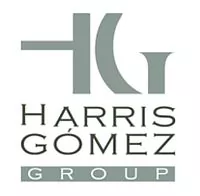Incorporating a company in Argentina can be time-consuming and frustrating for foreign companies. This was mainly due to the fact that the entire process to set up a business in Argentina could take from six months to one year. We know from experience that the time frame in conjunction with the complexities of the country often held back foreign investors/companies from making the decision to set up a company in Argentina.
The good news...earlier this year, under Law Number 27,349, published in the National Official Gazette on 22 April 2017, a new corporate vehicle has been introduced: the simplified corporation (Sociedad por Acciones Simplificada or SAS).
Since September 1st, the SAS has been fully available. Unlike other corporate vehicles available in Argentina, the SAS has few mandatory provisions, making it a very flexible, fast to incorporate, highly customizable, and cost-effective corporate vehicle.
Simplified Corporations ("SC" or "SAS").
The distinctive features of the SAS include:
- A SAS may be incorporated by one or more individuals or legal entities.
- A plural corporate purpose is allowed, with no need for the activities to be related.
- By-laws are highly customizable and may be designed to serve the partners' particular needs best.
- SAS minimum capital stock must be equivalent to two monthly minimum salaries, which currently amounts to AR$ 16,120.(USD$933.00 approx.)
- In case the company needs urgent financing, irrevocable capital contributions on account of future subscription of shares are allowed for a term of 24 months from their acceptance.
- SAS shareholders limit their liability to the shares they have subscribed and effectively paid.
- The SAS partners are legally entitled to decide on the company´s organization structure, laying out the provisions governing the company´s bodies.
- The SAS managers are to be individuals, either partners or not. Managers may be Argentine citizens or foreign individuals, and only one of them must reside in Argentina. Foreign managers must get a tax ID (Clave de Identificación or CDI), appoint a legal representative in Argentina and set a legal address in the country.
- SAS can carry their corporate and accounting books by electronic means.
- The Federal Tax Authorities ("AFIP") and financial entities will implement simplified procedures to get the company´s and foreign managers´ tax IDs and to set up bank accounts.
Incorporation Process – Practical Tips
The SAS stands out for the expeditiousness of the initial registration process, which in theory, can be obtained within 24 hours of filing the relevant documentation, provided that the IGJ's (General Justice Inspection) pre-approved template is used.
If the pre-approved template is not used, a legal opinion issued by a public notary or lawyer, in which the application is deemed appropriate, must be submitted.
Given that this is a new type of corporate vehicle, the period to obtain registration using customised bylaws is unknown at this point. In our opinion, most foreign companies will use bylaws drafted by their local lawyer so this extra time frame should be accounted for.
We also note that foreign shareholder must be previously registered at the IGJ (General Justice Inspection). The time for registration of the foreign company is around 2 to 3 month once the documentation is filed at the IGJ.
One possible workaround is to incorporate the company first with a national shareholder, most likely your lawyer, and then transferred once the foreign shareholder has been registered.
Conclusion:
Although the SAS will help reduce the time of incorporating a company in Argentina, the main advantage for foreign companies is the reduction in complexity and administration costs which will allow greater flexibility in the regulation of internal corporate affairs. This will mean a reduction in costs related to on-going corporate governance.
The content of this article is intended to provide a general guide to the subject matter. Specialist advice should be sought about your specific circumstances.

